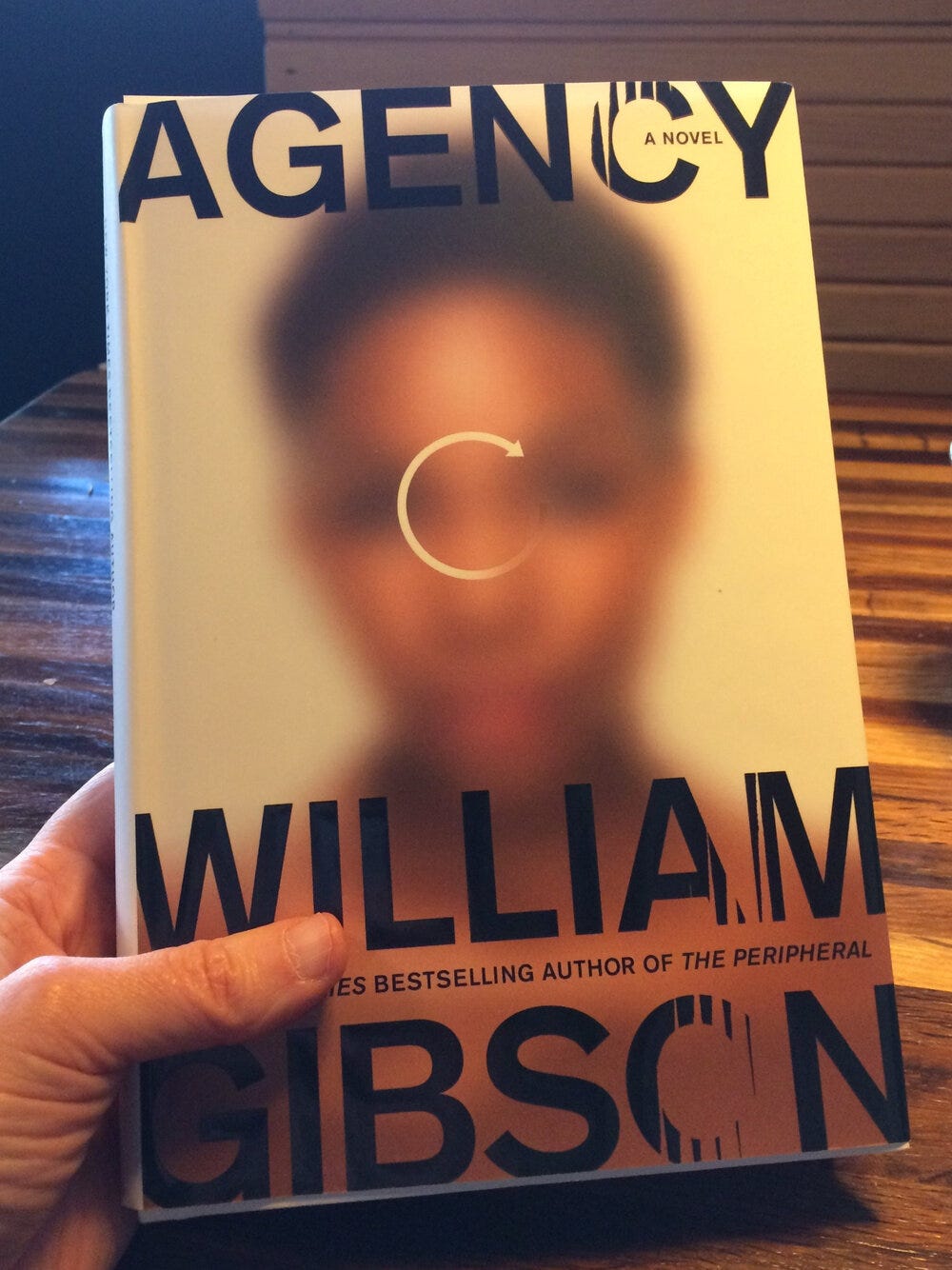the garden of forking paths
This Tuesday at last I got my hands on a book I had waited years to read: Agency, the sequel to The Peripheral, by William Gibson. The new novel imagines a different “stub” (alternative timeline) from Flynne Fisher’s in The Peripheral. This stub began sometime in mid-2015, and in it, the UK voted to remain and Hillary Clinton was elected president. It’s the timeline that I imagined we had veered away from in November 2016; nevertheless, in it all is far from well, as the threat of nuclear apocalypse hangs over the events of the novel.
Karin L. Kross’s “spoiler review” of The Peripheral at Tor.com begins with a quotation from “The Garden of Forking Paths” by Jorge Luis Borges:
In contrast to Newton and Schopenhauer, your ancestor did not believe in a uniform, absolute time. He believed in an infinite series of times, in a growing, dizzying net of divergent, convergent, and parallel times. The network of times which approached one another, forked, broke off, or were unaware of one another for centuries, embraces all possibilities of time. We do not exist in the majority of these times; in some you exist, and not I; in others I, and not you; in others, both of us. In the present one, which a favorable fate has granted me, you have arrived at my house; in another, while crossing the garden, you found me dead; in still another, I utter these same words, but I am a mistake, a ghost.
This garden of forking paths was on my mind as I read Agency. In the world (or worlds?) that Gibson imagines in The Peripheral and Agency, all known paths apparently lead to the “jackpot”: the dying off of 80% of humans, all top predators, and honeybees. Even the apparent stability of post-jackpot London is precarious, we learn in Agency, because while it depends on the klept (oligarchs) to maintain the order that keeps the biosphere from collapsing, it is also at risk from the klept. There is a constant threat that one of the kleptocrats will become too greedy. Meanwhile, somehow Ainsley Lowbeer is the one person keeping everyone and everything in line, both in the post-jackpot world and in innumerable stubs (we are told that she is involved in more stubs than the two featured in The Peripheral and Agency). The klept keeps Lowbeer alive, but she cannot possibly live forever. And then what?
Each time I reread The Peripheral, it is more horrifying to me; reading it this January, I saw how the lives of Flynne and her family and friends get caught up in what must seem like a game to the twenty-second century klept. I saw how Flynne and her family and friends are cornered into becoming kleptocrats themselves. And I saw that, despite the astonishing power they are able to accrue in a matter of days, thanks to the machinations of Lowbeer, they are not necessarily going to be able to avoid the jackpot.
Nor are we. In fact, I have also come to see that we are both heading toward the jackpot and living in a post-jackpot world. I’ve been reading The End Is Always Near by Dan Carlin (who was recently interviewed on On the Media), which proposes that history is in part the story of jackpot after jackpot after jackpot: the Bronze Age collapse, the collapse of the Assyrian Empire, the collapse of the Roman Empire, and the plague, in addition to others that Carlin does not address in his book, such as the jackpot that unfolded in the Americas after the arrival of Columbus to the Caribbean. What makes the coming jackpot distinct is its threat not just to humans, but to life itself.
Among all the many characters in Agency, the one who interests me most is Lowbeer. I do not understand her at all; nor can I trust the apparent benevolence of someone who wields so much power. I wished that the narrator slowed down just a bit to open up the inner life of Verity Jane, the main character in the novel’s stub. Unexpectedly, what affected me most, emotionally, was the recurring ghostly appearances of HRC, mainly on TV: hardworking, earnest, reassuring.




